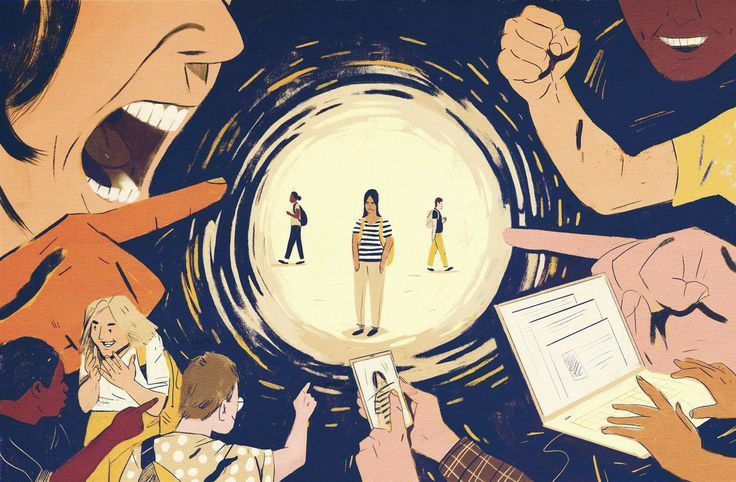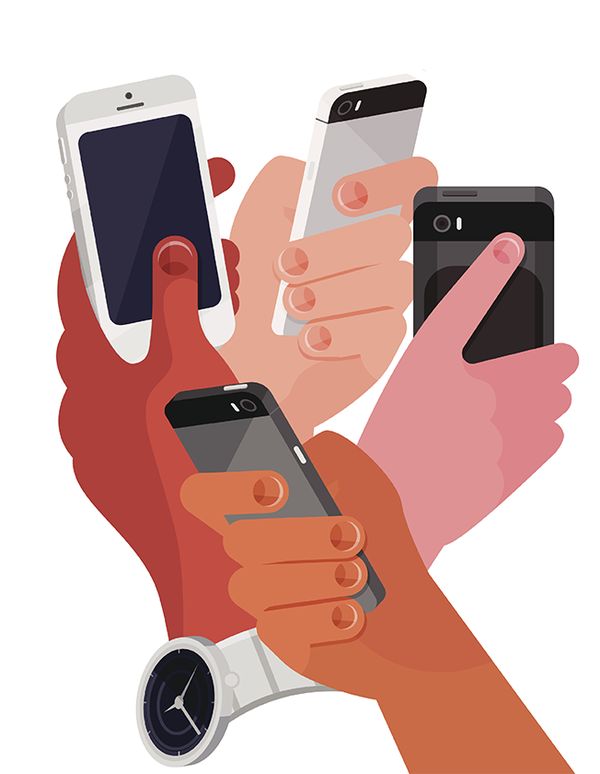“We Don’t Talk, We Attack”: How Conversation Died in the Age of Instant Outrage

Once upon a time, people had conversations. Real-time convo that requires them to think deeply and process their partner’s point, and see if they agree or not.
They didn’t always agree. In fact, most times they never. But they debated and discussed. They allowed each other the room to be wrong, or at least, the space to explain.
Now? Say something online and blink twice, you have either been called “pick me”, “misogynistic”, “feminist,” or more generally, you are “cancelled.”
No middle ground or maybe. Just loud takes and louder backlash.
Because in this age of hyper-offense, we don’t talk to understand anymore; we talk to attack.
And somewhere along the line, we have lost the actual art of dialogue.
The Rise of Clapback Culture
Social media gave everyone a mic. But instead of building a choir of different voices, we built a battlefield.
Every post is a performance. Every opinion is a ticking time bomb. Say the wrong thing or say the right thing at the wrong time, and someone is waiting with a screenshot, a thread, and a quote tweet laced with venom and bitterness.
And it is not always trolls or strangers. Sometimes it is people who follow you. People who pretend to be thoughtful until you say something they don’t agree with.
Then, suddenly, they treat you like you have committed war crimes because your opinion didn’t pass their vibe check. We don’t disagree anymore; we destroy.

Photo Credit: Pinterest
Nuance is Dead, and Everything is Binary
You are either woke or problematic. A feminist or a pick-me. A soft life advocate or a lazy youth. A defender of culture or an agent of oppression.
Social Insight
Navigate the Rhythms of African Communities
Bold Conversations. Real Impact. True Narratives.
There is no space for complexity or neutrality. No space for “I’m still figuring it out.” No space for “I understand both perspectives, and I do not totally agree with them. So, I am in between.”
We have turned every issue into a boxing match. Every opinion is a declaration of war.
And let’s be honest: half the time, we don’t even read the full context or get the full story.
A tweet goes viral, a quote is shared, and that is all it takes. No one asks questions. No one digs deeper. We just pick a side and start typing insults faster than we read the actual point.

Photo Credit: Pinterest
The Pressure to Be Loud and Right
In this digital climate, silence is suspicious and softness is weakness. If you are not clapping back, you must be agreeing. If you are trying to see both sides, you are accused of sitting on the fence.
So what do people do? They stop thinking deeply and start performing loudly.
They pick the loudest and most controversial opinion and tweet it before anyone else can. They become experts in outrage but beginners in understanding.
It is no longer about learning or unlearning. It is about trending. It is about who can say the boldest, harshest thing before nuance ruins the vibe.
Call Out Culture vs Accountability
Now, let’s get this straight: some people deserve to be called out and cancelled. Racists, abusers, oppressors, enablers, and people who harm others under the guise of free speech or tradition. They should absolutely be held accountable.
But calling someone out is not the same as mobbing them. It is not the same as dragging them over a 2015 tweet they have since apologized for. It is not the same as turning every disagreement into a moral failing.
Because there is a thin line between accountability and abuse, and we cross it daily.
Social Insight
Navigate the Rhythms of African Communities
Bold Conversations. Real Impact. True Narratives.
We have created a culture where people don’t grow; they just hide. Because growth requires making mistakes out loud, and these days, that is the one mistake that should never be made.
The Fear of Saying Anything at All
People are scared to speak now. Not because they don’t have thoughts, but because the cost of thinking out loud has become too high.
Writers won’t write. Podcasters edit too carefully. Friends tiptoe around sensitive topics in group chats.
Not because they lack opinions but because one wrong phrasing can get them digitally lynched.
And here is the irony: this fear does not make society smarter. It just makes people quieter and sneakier.
We have replaced honest conversations with perfect captions and passive-aggressive posts. Nobody is real anymore; we are all just playing it safe.
What This Culture is Doing to Us
This constant hyper-alertness is exhausting. It is making us anxious, self-censoring, and emotionally avoidant.
We scroll with suspicion. We post with disclaimers. We cancel people today for the things we might understand tomorrow.
We are not becoming better humans; we are just becoming better at pretending. We are not solving problems; we are just shouting past each other.
Real social change doesn’t happen in those tweets and clapbacks. It happens when people are given the space to reflect, ask questions, and evolve.
But when everything is attacked first, listen later, we kill that process.
What Happened to Grace?
What happened to asking, “What did you mean by that?” What happened to saying, “I don’t agree with you, but I want to understand where you are coming from”? What happened to grace?
Social Insight
Navigate the Rhythms of African Communities
Bold Conversations. Real Impact. True Narratives.
People are growing in public. People are unlearning trauma, unpacking culture, and trying to figure life out. And sometimes, they will say the wrong thing before they learn the right way to express it.
That doesn’t make them evil. That makes them human, with flesh and blood.
But in this age, humanity is rarely allowed.
Reclaiming the Art of Dialogue
So how do we fix it? We need to stop centering ego and start centering empathy. Not every disagreement is a threat to your identity.
We need to allow room for learning. If you say you want people to grow, you can’t attack them at every misstep.
We need to listen more than we reply. You are not always the main character. Sometimes, you are the student.
And we need to stop demanding perfection from people who are still in process. You were not born ‘enlightened’ either.
Talk, Don’t Tear
If we want a culture that actually changes things, not just trends for 48 hours, we need to make space for real conversations.
Messy, uncomfortable, unfiltered, patient conversations. Not clapbacks, cancellations, and callouts for likes.
Because this performance of outrage may be loud, but it is not deep. And at the end of the day, what is the point of being “right” if nobody is listening anymore?
You may also like...
When Sacred Calendars Align: What a Rare Religious Overlap Can Teach Us

As Lent, Ramadan, and the Lunar calendar converge in February 2026, this short piece explores religious tolerance, commu...
Arsenal Under Fire: Arteta Defiantly Rejects 'Bottlers' Label Amid Title Race Nerves!

Mikel Arteta vehemently denies accusations of Arsenal being "bottlers" following a stumble against Wolves, which handed ...
Sensational Transfer Buzz: Casemiro Linked with Messi or Ronaldo Reunion Post-Man Utd Exit!

The latest transfer window sees major shifts as Manchester United's Casemiro draws interest from Inter Miami and Al Nass...
WBD Deal Heats Up: Netflix Co-CEO Fights for Takeover Amid DOJ Approval Claims!

Netflix co-CEO Ted Sarandos is vigorously advocating for the company's $83 billion acquisition of Warner Bros. Discovery...
KPop Demon Hunters' Stars and Songwriters Celebrate Lunar New Year Success!

Brooks Brothers and Gold House celebrated Lunar New Year with a celebrity-filled dinner in Beverly Hills, featuring rema...
Life-Saving Breakthrough: New US-Backed HIV Injection to Reach Thousands in Zimbabwe

The United States is backing a new twice-yearly HIV prevention injection, lenacapavir (LEN), for 271,000 people in Zimba...
OpenAI's Moral Crossroads: Nearly Tipped Off Police About School Shooter Threat Months Ago
ChatGPT-maker OpenAI disclosed it had identified Jesse Van Rootselaar's account for violent activities last year, prior ...
MTN Nigeria's Market Soars: Stock Hits Record High Post $6.2B Deal

MTN Nigeria's shares surged to a record high following MTN Group's $6.2 billion acquisition of IHS Towers. This strategi...
